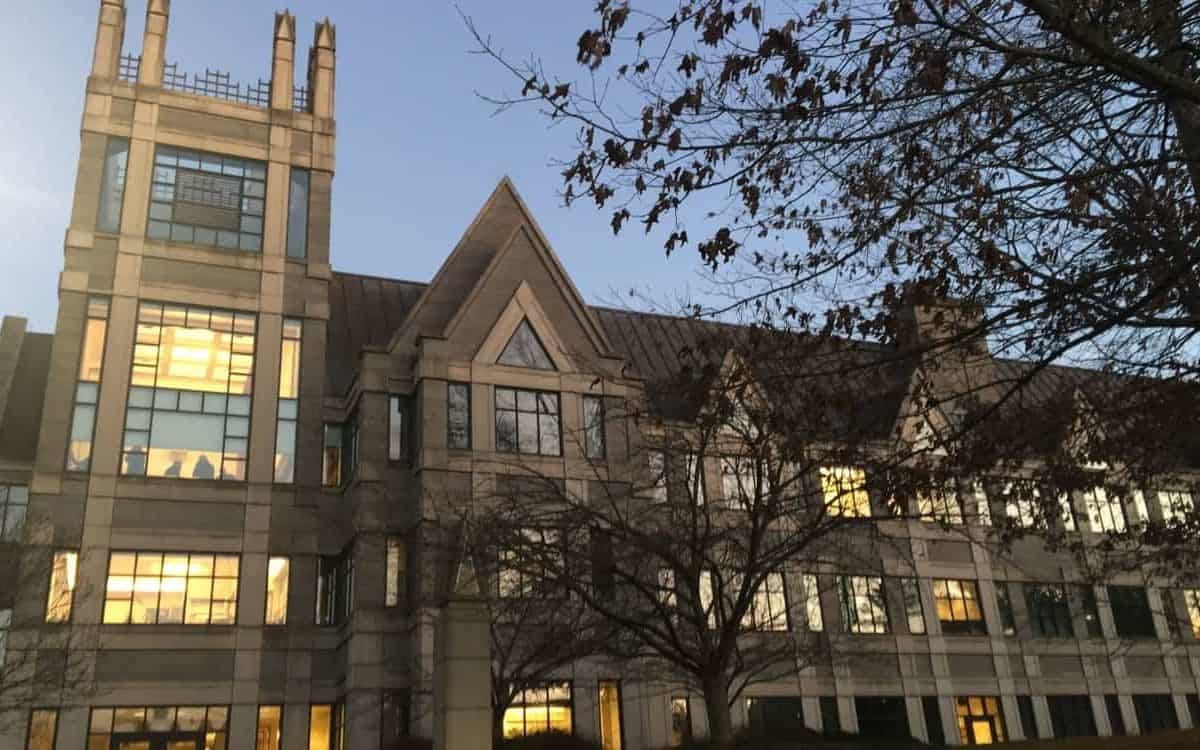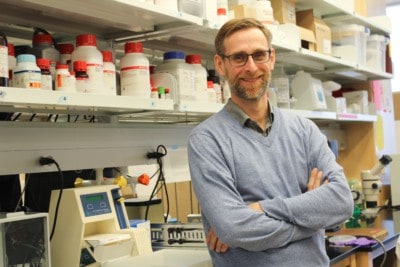

Dr. Richard Besser, President and CEO of the Robert Wood Johnson Foundation (RWJF), joined leaders of Duke University’s Sanford School of Public Policy on Wednesday as part of the Foundation Impact Research Group Seminar Series.
Besser, a pediatrician and epidemiologist by training, came to RWJF in 2017 after serving as acting director of the Centers for Disease Control and Prevention (CDC) and as health and medical editor for ABC News. As head of the nation’s largest health-focused philanthropy, Besser discussed how RWJF frames health in his talk “Building a Culture of Health Using an Equity Lens.”
He explained that while access to a health care provider is important, it’s a small part of the contribution to health. Instead, he said health depends more on factors like where you live, where you play, where you work, access to high quality and affordable foods, jobs that provide a livable wage, and the removal of barriers to health that are caused by racism and sexism.
Through its focus on equity, RWJF is working to remove barriers to health caused by discrimination.
“It’s one of the hardest things in America to talk about,” Besser said. “We talk about America as a land of opportunity. We talk about the American dream as what we’ve all been striving for. But as a nation we haven’t fully lived up to that.”
Besser sees America’s shortcomings through his work first-hand. For half a day each week, he works as a volunteer at a Federally Qualified Health Center (FQHC).
“It’s in those clinics that I see those disparities in opportunities play out,” he said.
He told the story of a 4-year-old boy who wasn’t gaining weight. When the registrar developed a relationship with the boy’s mother, she was able to say, “He’s hungry. We don’t have enough food.” Because the boy was undocumented, he didn’t have access to safety net programs, so the FQHC connected his family to a local food bank.
In another scenario, back when Besser worked at a clinic in Harlem, he recalled asking a mother who had traveled all the way from Staten Island what kind of physical activity her kids got each week. (The recommendation for children is one hour of physical activity five times each week.) She replied that it wasn’t safe outside, so her kids had to stay inside, likely increasing their screen time and other risk factors for obesity.
“Those kids didn’t have the opportunity to play,” Besser explained. “These are the faces and the voices I try to keep in mind.”
Through such first-hand examples, Besser explained that the choices people make depend on the choices people have, and he said that for too many people in America, healthy choices aren’t available.
Defining equity
From his days working for ABC news, Besser said he knows that the words you choose are really important.
“The wrong word can immediately put up a wall,” he said, adding that at RWJF, one of the things they’ve been working hard to do is explain the difference between equality and equity. He showed a slide with an infographic to help visualize the difference where the exact same bike was given to a disabled woman, a tall man, a woman, and a child. It, of course, could not accommodate each person appropriately for a safe and enjoyable bike ride based on their different sizes and needs. In another column, the bike was modified for each person to demonstrate the equitable solution rather than the equal solution.
Besser defined equity for the foundation’s work as “giving people what they need to make the healthy choice.” Even in the nearly two years since he joined RWJF, the foundation has made significant changes in it’s approach to equity. It used to operate with one team focused on health equity.
“What we recognized is that we had to build health equity into all of our programs,” Besser said.
Following the data
While areas like equity are hard to explain and prove impact in, Besser points to the data.
“When it comes to racism and structural racism and how that plays out, one of the things that’s helpful is using data to shine a light,” he said.
RWJF uses County Health Rankings which measure 40 specific health measures like diabetes and premature deaths, and other measures like unemployment, failing schools, and persistent poverty. Last year, instead of looking at just place and health, RWJF adopted an analysis of place, health, and race.
He said that across every county — including both those with high and low ranking — blacks, Latinos, and Native Americans always fared worse than their white counterparts.
Besser pointed to studies that showed that black babies are more than twice as likely to die as white babies before reaching their first birthdays. And data from Brookings and the CDC showed that “the infant mortality for babies born to black women with an advanced degree is higher than that of babies born to a white woman with less than an eighth-grade education.”
“That should make you [ask], ‘Why?'” he said.
Partnerships
RWJF has four funding focus areas: healthy communities, healthy children and families, transforming health and health care systems, and leadership for better health. Through these areas, the foundation tries to answer questions like “How do you do urban development that doesn’t lead to gentrification and displacement?” and “How do you empower people within their own communities … to identify and solve the problems that they see?”
The foundation targets communities through place-based funding to find the on-the-ground answers. And they are working to find the right partnerships. One of their partnerships is with the national YMCA. Besser said the Y’s more than 22 million members and 10,000 YMCA’s make it an invaluable partner with deep roots in the community. He said the YMCA is also one of the biggest providers of services like day care and diabetes education in the country.
The partnership with the YMCA goes along with another project, where RWJF is examining life expectancy based on zip code.
“Just one number different and you might have a whole other life,” said a collaboration video with the YMCA. “Different school. Different job. Different dreams. Different problems. In America, the zip code you’re born in can determine your future.”
Besser said he thinks messaging from the YMCA will also make people listen differently than they would to other health organizations, and getting that message through is important.
“How can you sit idly and accept that people in our neighborhood live 10 years less?” Besser asked. “That should be unacceptable.”
RWJF also holds partnerships with Sesame Street (for work around the issue of adverse childhood experiences) and with the NAACP for deeper community work. Through these partnerships and continued philanthropy, Besser said RWJF consistently asks the question, “Who’s being left out?”
“Who is benefitting the most?” he asked. “And whose life experiences are we missing?”


